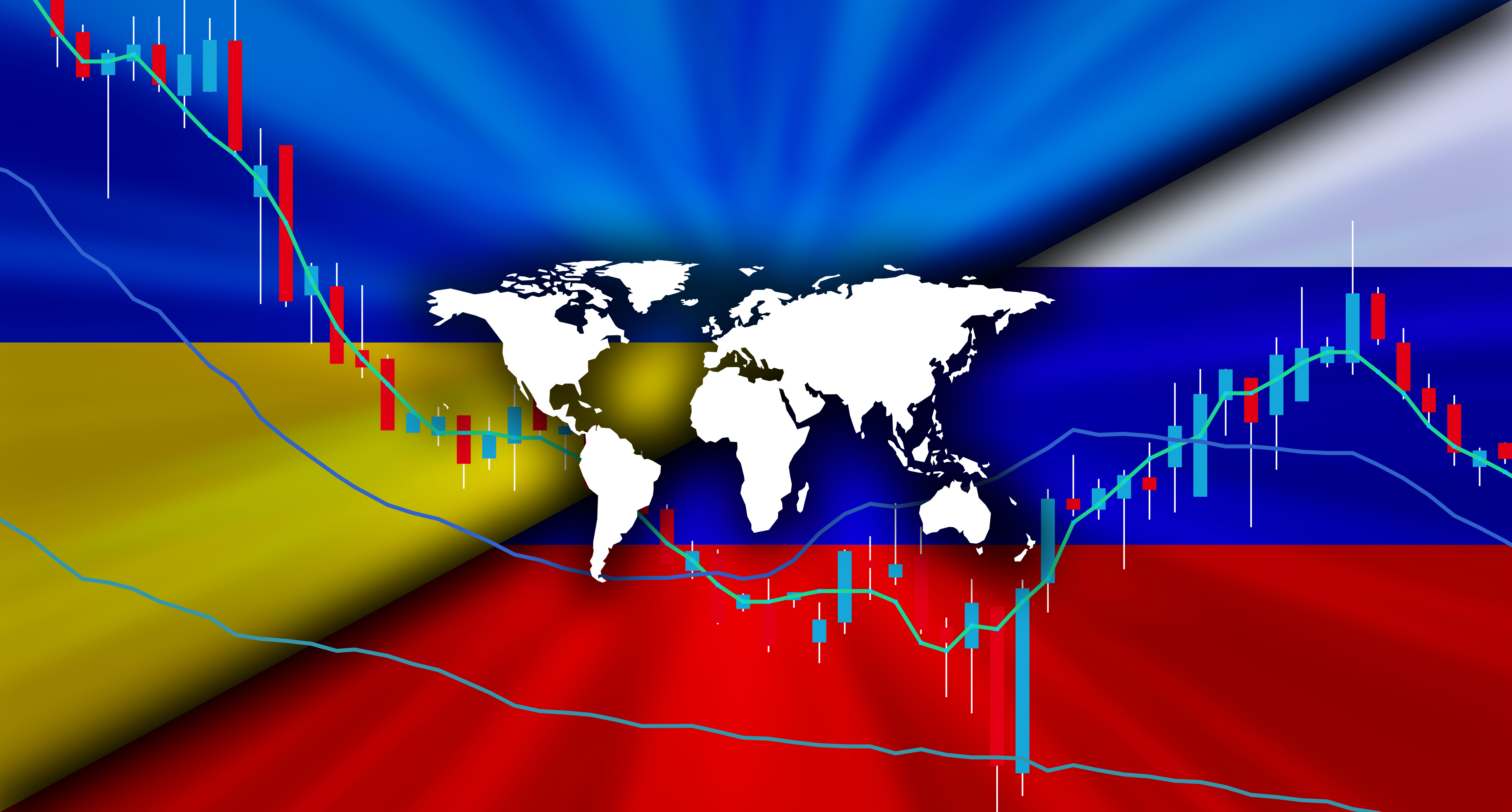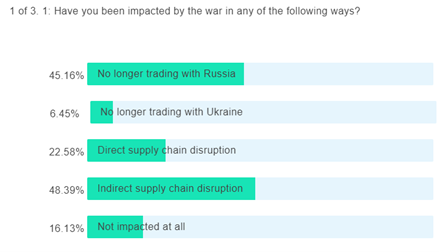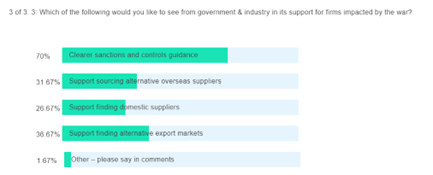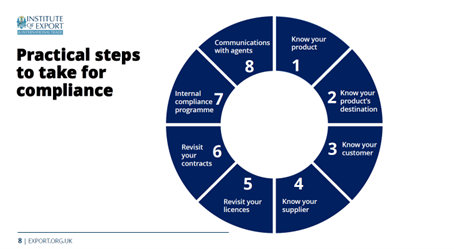
Sanctions have played a key role in a significant drop in UK-Russia trade since the start of the war in Ukraine but UK businesses have warned that clearer guidance is needed on what they mean and how tot ensure compliance with them.
On a webinar from the Institute of Export & International Trade about the impact of sanctions, one year on from the start of Putin’s invasion, almost half (48%) of the attendees reported that they had experienced at indirect supply chain disruption as a result of the war, with a similar proportion (45%) saying they no longer traded with Russia.

However, over a third (35%) of the businesses said they had experienced some “difficulty interpreting a particular sanction” with a just under a quarter (24%) saying they had experienced difficulty “interpreting sanctions as a whole”.
When asked about what support they’d most like to see from government and industry, 70% of the audience said they would welcome “clearer sanctions and controls guidance”.
Objectives
A senior policy adviser at the Department for Business and Trade (DBT), said on the webinar that the objectives of the sanctions were to “inflict cost at scale on Russia, undermine the war and maximise the strategic support for Ukraine”.
They said that sanctions on exports included bands on various goods, including dual-use items, aviation, luxury products, chemicals, plastics and machinery. The adviser noted that imports of iron, steel, silver and wood were among those to also be banned, with fuel imports also phased out throughout 2022 and early 2023.

Impact
“As a result UK monthly exports to Russia decreased by almost 80% over September 2022 compared to September 2021,” they said. “The UK monthly imports of goods from Russia decreased by over 99% in the same period.”
They added that sanctions were working and contributed to Russian GDP falling by 4.3% in May 2022 compared to May 2021, with imports of critical goods from the UK and its allies dropping by 72%.
“It’s bringing Russia into its longest recession for over 25 years,” the adviser said.
Services
Another member of the DBT team said that two packages of sanctions were introduced on services trade. The first of these came into force in July 2022 and prohibited accountancy services, business and management consultancy services, and public relations support provided directly or indirectly to a person connected with Russia.
The second package came into force on 16 December and prohibits advertising, architectural, engineering, auditing, IT consultancy and design services; a three month period is currently in place for firms to wind down contracts in these services, with auditing contracts given to the 31 May to be finished.
“These are the sectors or subsectors where the data indicates that Russia is highly dependent on the UK and its international partners,” they said.
Know your product
Sam Hodgkins, a trade and customs specialist at the IOE&IT, reminded traders of an eight-step process towards sanctions compliance that her colleague, Ray Burgin, presented on a webinar the IOE&IT ran shortly after the war began in 2022.
These steps were:
- Know your product
- Know your product’s destination
- Know your customer
- Know your suppliers
- Revisit your licences
- Revisit your contracts
- Have an internal compliance programme
- Communicate properly with your intermediaries
On the first four steps she remarked “knowledge really is king” and made clear that companies needed to conduct proper due diligence on their customers, as well as ensure they had full and accurate information about the origin of their supplies.
She also said that “it is best practice to have an internal compliance programme in place if dealing with controlled or sanctioned goods in any market”.




